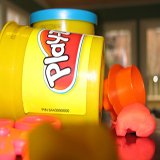How to Promote Self Concept Development in Children
Self concept development is a child's armor against the challenges of the world.
Parents, more than anyone else can promote their child's self concept. It isn't a particularly difficult thing to do. If fact, most parents do it without even realizing that their words and actions have great impact on how their child feels about himself.
It is important to recognize that self-concept or self-knowledge is very much like any other kind of knowledge, for the self is a cognitive construction. Therefore, knowledge of the self will be constrained by the childs general level of cognitive development.
Self concept is multidimensional, like a house with various rooms. In many homes, rooms are added on after the initial construction. In contrast to this, the self concept development is dynamic and changes throughout development.
Generally, the childs self concept proceeds from a rather simple structure to a much more organized structure in adulthood through a process of stage like changes.
Here are some suggestions to keep in mind on how to promote self concept development.
Suggestions for Self Concept Development
- When you feel good about your child, mention it to him often.
- Be generous with praise.
- Teach your child to practice making positive self concept statements.
- "I can get this problem, if I just keep trying."
- "It's OK if our team lost today. We all tried our best and you can't win them all."
- "It makes me feel good to help others even if the person doesn't notice or thank me."
- Avoid criticism that takes the form of ridicule or shame.
- Teach your child about decision-making and to recognize when he has made a good decision.
- Help your child clarify the problem that is creating the need for a decision. Ask him questions that pinpoint how he sees, hears, and feels about a situation and what may need to be changed.
- Brainstorm the possible solutions. Usually there is more than one solution to a given problem, and you as the parent can make an important contribution by pointing out this fact and by suggesting alternatives if your child has no solution.
- Allow your child to choose one of the solutions only after fully considering all the consequences. The best solution will be one that solves the problem and simultaneously makes your child feel good about himself.
- Later join your child in evaluating the results of that particular solution. Did it work out well? Or did it fail? If so, why? Reviewing the tactics will equip your child to make better decisions the next time around.
- Develop a positive approach to providing structure for your child.
The keyword here is often. We as parents are often quick to express negative feelings to our children. Somehow we don't get around to mention the positive feelings to them.
A child doesn't instantly realize that your are feeling good about him. They need to hear it from you constantly, because they remember positive statements.
They store them up and "recall" these statements to themselves. Practice giving your child words of encouragement throughout each day.
Use what is called descriptive praise to let your child know when they are doing something well. You must of course be on the look out for situations in which your child is doing a good job or displaying a talent.
When your child completes a task or chore you could say, "I really like the way you straightened your room. You found a place for every thing and put each thing in its place."
When you observe them showing a talent you might say, "That last piece you played was great. You really have a lot of musical talent."
Don't be afraid to give praise often even in front of family or friends. They really love it.
Use praise to point out positive character traits. For instance, "You are a very kind person." Or, "I like the way you stick with things you do even when it seems hard to do." You can even praise a child for something he did not do such as "I really liked how you accepted my answer of 'no' and didn't lose your temper."
Self-talk is very important in everything we do. Psychologists have found that negative self-talk is behind depression and anxiety in later life.
What we think determines how we feel and
how we feel determines how we behave.
Therefore, it is important to teach children to be positive about how they "talk to themselves."
Some examples of useful self-talk are:
Sometimes it is necessary to criticize a child's actions, and it is appropriate that parents do so.
Just remember that when the criticism is directed to the child as a person it can easily lead to a shame feeling by the child.
It is important to learn to use "I statements" rather than "You statements" when giving criticism.
For instance say, "I would like you to keep your clothes in the proper place in your closet or drawers not lying all over your room;" rather than saying "Why are you such a lazy slob? Can't you take care of anything?"
Children make decisions all the time but they are often not even aware that they are doing so.
There are a number of ways parents can help children improve their ability to consciously make wise decisions.
How to Learn Children to Make Wise Decisions.
All kids need to accept responsibility for their behavior. They should learn self-discipline.
To help children learn self-discipline, you as the parent need to take on the role of a teacher rather than that of disciplinarian and punisher.
Learn the "Three Fs" of Positive Parenting.
(Discipline should be Fair, Firm and Friendly).
10 More Steps to Help with
Positive Self Concept Development:
- Teach children to change their demands to preferences. Point out to children that there is no reason they must get everything they want and that they need not feel angry either. Encourage them to work against anger by setting a good example and by reinforcing them when they display appropriate irritation rather than anger.
- Encourage your children to ask for what they want assertively, pointing out that there is no guarantee that they will get it. Reinforce them for asking and avoid anticipating their desires.
- Let children know they create and are responsible for any feeling they experience. Likewise, they are not responsible for others' feelings. Avoid blaming children for how you feel.
- Encourage your children to develop hobbies and interests which give them pleasure and which they can pursue independently.
- Let children settle their own disputes between siblings and friends alike.
- Help your children develop "tease tolerance" by pointing out that some teasing can't hurt. Help children learn to cope with teasing by ignoring it while using positive self-talk such as "names can never hurt me," "teases have no power over me," and "if I can resist this tease, then I'm building emotional muscle."
- Help children learn to focus on their strengths by pointing out to them all the things they can do.
- Encourage your children to behave toward themselves the way they'd like their friends to behave toward them.
- Help your children think in terms of alternative options and possibilities rather than depending upon one option for satisfaction. A child who has only one friend and loses that friend is friendless. However, a child who has many friends and loses one, still has many. This same principle holds true in many different areas. Whenever you think there is only one thing which can satisfy you, you limit your potential for being satisfied! The more you help your children realize that there are many options in every situation, the more you increase their potential for satisfaction.
- Laugh with your children and encourage them to laugh at themselves. People who take themselves very seriously are undoubtedly decreasing their enjoyment in life. A good sense of humor and the ability to make light of life are important ingredients for increasing one's overall enjoyment.
Find It!
Can't remember where you read something specific? Just type in your search term in the box below and your specific topic will be returned to you instantly.









